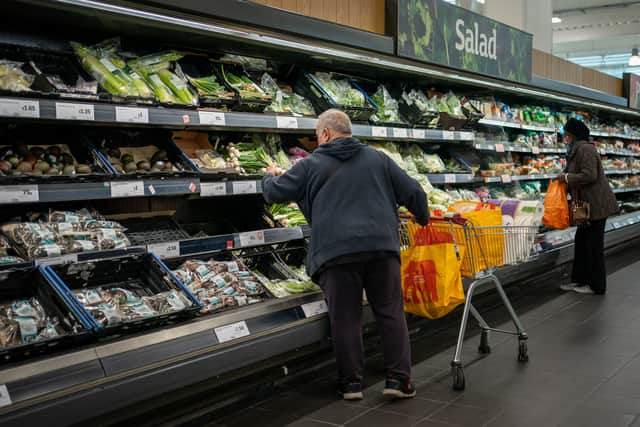UK inflation rate falls by more than expected to 7.9% in June - its lowest rate in more than a year
and live on Freeview channel 276
UK inflation has fallen to 7.9% in June, the lowest the rate has been since March 2022, official figures show.
The Office for National Statistics (ONS) said the annual inflation rate as measured by the consumer prices index resumed a downward path from 8.7% in May to 7.9% in June.
The drop was more than what was expected as it exceeded City forecasts of a decline to 8.2%.
It is the lowest rate since March last year but it is still above the Bank of England’s official 2% target.
The ONS said the downward trend is due to cheaper petrol and diesel prices last month. Car fuel prices fell by 22.7% in the year to June 2023, compared with a fall of 13.1% in May.
Average petrol and diesel prices stood at 143.0 and 145.7p per litre respectively in June 2023, compared with 184.0p and 192.4p per litre in June 2022.


Food prices rose last month but by less than in June 2022 which also led to an easing in inflation.
ONS chief economist Grant Fitzner said: “Inflation slowed substantially to its lowest annual rate since March 2022, driven by price drops for motor fuels. Meanwhile, core inflation also fell back after hitting a 30-year high in May.
“Food price inflation eased slightly this month, although it remains at very high levels.”
Jeremy Hunt has said that despite inflation dropping to a 15-month low in June the government is “not complacent”.
While shadow chancellor Rachel Reeves said inflation still “remains higher than our international peers” which is “becoming a hallmark of Tory economic failure.”
She added: “Today’s numbers confirm what families across the country already know – that prices are still going up at staggering rates and that they’re bearing the brunt of those costs.”
Now inflation has dropped more than expected investors are rethinking how high the Bank of England will need to raise interest rates.
The money markets now think there is a 65% chance that the Bank will raise rates by a quarter-point, from 5% to 5.25%, at its meeting in early August.
Nicholas Hyett, Investment Manager at Wealth Club (leading investment service) said “there will be real hopes” that the figures “marks a turning point for UK inflation”.
He added: “With other indicators, such as corporate insolvencies, also suggesting the economy is weakening, the next challenge is to keep the economy from collapsing into the deep freeze and triggering a painful recession. The Bank of England may ease off the pedal where interest rate rises are concerned, but its careful balancing act isn’t over yet.”
Comment Guidelines
National World encourages reader discussion on our stories. User feedback, insights and back-and-forth exchanges add a rich layer of context to reporting. Please review our Community Guidelines before commenting.
